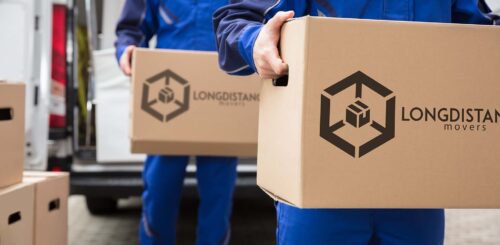When making a decision about such a huge step in your life such as moving for a job, it may be smart to dwell on the affordability of the whole venture. Before relocating, you obviously need to check the standard of living and the living costs in your future place of residence, since just a slight rise in your paycheck will not necessarily provide a better life to you and your family.


Moving laterally in your career is not a huge leap generally, so it may be more affordable to stay in your current home. But if a spouse gets a job in a growing company and you can find a suitable career opportunity as well, then you should seriously consider relocation. Even if the spouse’s salary stays close to the one in the former company, it will give your family a fresh chance to benefit in the long run. However, if you are not in a committed relationship, you should refrain from making such a move to avoid disappointment if things don’t work out and you realize you’ve made a huge mistake of leaving your previous home.


What’s Necessary to Know When Moving for a Job
As with other life plans, making a list of pros and cons is very useful. The visual perception of your new idea will make it easier to evaluate all the advantages and disadvantages of the move.
Ask yourself what the benefits of your career relocation will be and then focus on the negative aspects. For example, leaving your current home might deprive you and your family of your friends’ and relatives’ precious input, of your hobbies and other little things that made your life so far. Will you be able to compensate for that?
On the other hand, perhaps you will get closer together, find hobbies available in your future place of residence and improve your living standard. If the pros outweigh the cons, you may count on people around for support.
Also, relocate for the better, whatever that means for you and your family. If you live in a small, peaceful town, but long for the big city bustle, then relocating to an urban area might be the change you need. On the other hand, if you receive a good employment opportunity in the city but your family refuses to leave, you need to consider the option of traveling to work every day even if it means more time spent commuting. In that case, you need to write down the traveling expenses and see what the calculation tells you.
The same goes for your new salary, especially if your family is going to another city with you. You must check the living costs and compare them to your future income, along with the one-time expense of relocation. You may also check the reviews of locals living in your potential place of residence to see if they find their lives there satisfactory. If you are not sure about the future job and place of work, do not make the decision hastily. And don’t forget to contact your employer to inquire whether it is a steady or temporary employment opportunity.


Relocation Costs
Relocation is an expensive adventure that demands a lot of money, not to mention physical and mental strength. Furthermore, all relocating issues tend to multiply if you are going long-distance. So, if you are moving for a job with the same employer, you might consider asking for relocation assistance, as many companies put aside money for such expenses in their budgets. Maybe your future employer is even willing and able to assist. If not, then think about getting assistance from your friends and relatives, as the expenses might be high and you need all the money you can spare for having a fresh start.
Save Money and Create a Budget to Protect Yourself from Debt
Since relocation expenses can be pretty high, it might be advisable to start saving money in advance. But, it is also very important to calculate the potential expenses beforehand, as you do not want to start a new life in a new home with a huge credit card bill. Once you put all that on paper, you will be able to make a realistic evaluation of your capabilities and either hire help or rely on yourself and your friends. Also, if the company is giving you some kind of assistance, it is nice to have the calculation ready and get some cash in advance.
The proper calculation will also help you decide what to pack and what to buy at your future destination. There are certain priorities to take care of and you need to know what they are. Some things you can do without at the beginning, but some are essential. Also, packing material costs, so don’t forget to include it on the list of expenses. You should also take into account gasoline, meals along the way, accommodation if moving long-distance or airline tickets. End with the costs you will face once you arrive at your future destination, such as electricity, heating, water, groceries, cleaning supplies, Internet services and so on.
Are You Looking into Credit Options?
If you are thinking about asking for a loan, you need to increase your credit score. To achieve that, you need to clean up your credit report, negotiate outstanding balances, increase your credit limit, open an account and become an authorized user.
If you are in a hurry to get credit, you need to remove recent late payments and collection account, pay down revolving balances to less than 30% and raise your credit limits.


Consider Your Career Options Before You Move
A new career opportunity is something to look forward to, as it broadens your knowledge and skills and qualifies you for better professional positions in the future. Furthermore, you will be expanding your business network by meeting new people, which is essential for your professional future.
When evaluating a new job offer that requires you to move, check what prospective work development is there for you after the job, even though no one can give you any guarantees. Finally, you need to have a plan B if for any reason your work is not what you imagined it would be, which means you have to check other employment opportunities there, especially if you are relocating to an isolated area.
Sometimes, to get an unbiased perspective of the relocation process, you need to consult with people who can give you an objective opinion, like colleagues who have made similar decisions. They can advise you about what to expect. Also, some companies allow short-term relocation as a trial period, so check if that is the case. There’s no harm in asking, especially the right questions.

Start Building Your Network
When you move, and you do not know any of the people in your new environment, you should seek assistance from your friends and relatives. Chances are some of them might know someone at your future destination to help you accommodate better. Get to know the people you will work with and meet your neighbors, even if it means stepping out of your comfort zone to make new friends.






